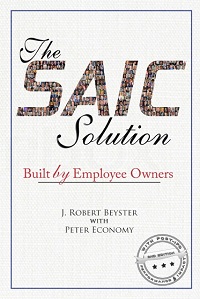The Future of Algae-Based Biofuels
2 Comments Published by Dr. Beyster May 28th, 2009 in Technology.A reader of this blog recently posted a series of questions asking my thoughts about the prospects of algae-based biofuels. I have decided my answers might be of interest to you, so I am posting the questions and my responses here:
- What are advantages and disadvantages of using algae biofuel?
The jury is still out on what the ultimate advantages and disadvantages of using algae biofuel are. I can only speculate on what the impact will be after all the development is done and the plants are built to produce the fuel. Assuming it works, the advantages are we will be relieved at least partially of our dependence on fossil fuels. This will take a long time, but we have the time. Ultimately, my feeling is this sort of fuel will become an important part of our nation’s energy portfolio. As far as disadvantages go, right now I would have to include the research unknowns of the technology and whether or not it will ultimately prove economically feasible.
- What are the jobs created by algae biofuel production? And what is the education background required?
In full production, algae biofuels will probably require many hundreds of people to man the production lines. Some of these workers will be skilled technicians, others will be production line individuals, along with supervisors and the usual support crews in any production operation. I imagine that at least one-third of the people employed in the industry will have college degrees of one sort or another. The breakthrough ideas that makes the technology feasible will come from a small handful of highly educated people with advanced degrees.
- What do you think of the future of algae biofuel?
There are many organizations — maybe 25 or 30 in this country — that are betting their futures on algae biofuels. I join these people in feeling that there is a bright future for this source of energy down the pike.
- I am a student of biotechnology; where should I start or how can I get involved in the projects of algae biofuel in the near future?
Depending on where you live, I think the answer to that question will differ. It would be easiest for you to get involved if there are others in your area that are interested in productizing biofuels. San Diego has become a hotbed for this technology, with the new San Diego Center for Algae-based Biofuels, and strong research programs in biofuels at UCSD, the Scripps Research Institute, the Venter Institute, and others. You might consider contacting them directly and exploring opportunities with them.
- How can algae biofuel benefit the community as a whole, especially people in polluted or less wealthy areas?
One possibility is by creating an exciting new green industry and jobs that go along. The technology is nonpolluting, and when in production it’s low-tech and can be accomplished most anywhere the algae can grow.
- What do you think the government can do to help in the project or promotion of it? What is the role of the government in algae biofuel production?
The government can supply funding for basic research on the technology and for the building of pilot plants to demonstrate proof of principle. The government should not have a role in its production.
- How can the public be involved in the projects of algae biofuel?
The usual approach for public involvement would be through equity investments in the companies that are pursuing the technology.
- What are the current issues or burning questions about algae biofuel, and what are your opinions on them?
There are probably many issues, but the main issue I’m aware of at the moment is the question of whether it will be efficient to grow the algae in huge vats or in large outdoor ponds. Each has their pros and cons, but one method will eventually win out.
Thank you for your questions. If any readers have anything to add to my answers, I’ll be interested in seeing your responses.
* * *
I have attached a photo of Paul Kouris, Ron Arnold, and me at the Loews Coronado Resort during a recent Friday visit on Solutions.

Related Posts at Dr. Beyster’s Blog





Our school is experimenting with producing biofuel. It seems to me that we have to do something to help our enviroment and tohelp improve the job market. With that in mind I was thinking of becoming involved by becoming a techican. Do you think that this field would be biased against the 50 something age bracket?
Vickie: Thank you for your message on my blog. I am pleased to hear that your school is experimenting with the production of biofuel. If you are able to capture the imagination of these children, many of them will likely want to become scientists and engineers when they go on to college and then their careers. This is good news for our country and I applaud you and your fellow teachers for introducing your students to this area of inquiry. Regarding your plans to become a technician in this area of science, if you have the necessary skills and knowledge, then age should not be an issue. — Bob